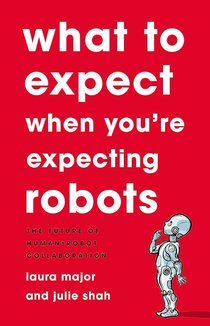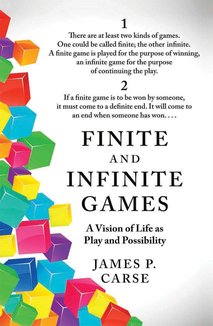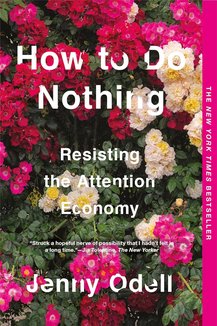Recommended Books

What To Expect When You're Expecting Robots: The Future of Human-Robot Collaboration
Authors:
Laura Major
,
Julie Shah
ISBN 13:
978-1541699113
The next generation of robots will be truly social, but can we make sure that they play well in the sandbox? Most robots are just tools. They do limited sets of tasks subject to constant human control. But a new type of robot is coming. These machines will operate on their own in busy, unpredictable public spaces. They'll ferry deliveries, manage emergency rooms, even grocery shop. Such systems could be truly collaborative, accomplishing tasks we don't do well without our having to stop and direct them. This makes them social entities, so, as robot designers Laura Major and Julie Shah argue, whether they make our lives better or worse is a matter of whether they know how to behave. What to Expect When You're Expecting Robots offers a vision for how robots can survive in the real world and how they will change our relationship to technology. From teaching them manners, to robot-proofing public spaces, to planning for their mistakes, this book answers every question you didn't know you needed to ask about the robots on the way.
Find on:
 Amazon
Amazon

Finite and Infinite Games
Author:
James Carse
ISBN 13:
978-1476731711
“There are at least two kinds of games,” states James P. Carse as he begins this extraordinary book. “One could be called finite; the other infinite. A finite game is played for the purpose of winning, an infinite game for the purpose of continuing the play.” Finite games are the familiar contests of everyday life; they are played in order to be won, which is when they end. But infinite games are more mysterious. Their object is not winning, but ensuring the continuation of play. The rules may change, the boundaries may change, even the participants may change—as long as the game is never allowed to come to an end. What are infinite games? How do they affect the ways we play our finite games? What are we doing when we play—finitely or infinitely? And how can infinite games affect the ways in which we live our lives? Carse explores these questions with stunning elegance, teasing out of his distinctions a universe of observation and insight, noting where and why and how we play, finitely and infinitely. He surveys our world—from the finite games of the playing field and playing board to the infinite games found in culture and religion—leaving all we think we know illuminated and transformed. Along the way, Carse finds new ways of understanding everything, from how an actress portrays a role to how we engage in sex, from the nature of evil to the nature of science. Finite games, he shows, may offer wealth and status, power and glory, but infinite games offer something far more subtle and far grander. Carse has written a book rich in insight and aphorism. Already an international literary event, Finite and Infinite Games is certain to be argued about and celebrated for years to come. Reading it is the first step in learning to play the infinite game.

How to Do Nothing: Resisting the Attention Economy
Author:
Jenny Odell
ISBN 13:
978-1612198552
** A New York Times Bestseller ** NAMED ONE OF THE BEST BOOKS OF THE YEAR BY: Time • The New Yorker • NPR • GQ • Elle • Vulture • Fortune • Boing Boing • The Irish Times • The New York Public Library • The Brooklyn Public Library "A complex, smart and ambitious book that at first reads like a self-help manual, then blossoms into a wide-ranging political manifesto."—Jonah Engel Bromwich, The New York Times Book Review One of President Barack Obama's "Favorite Books of 2019" Porchlight's Personal Development & Human Behavior Book of the Year In a world where addictive technology is designed to buy and sell our attention, and our value is determined by our 24/7 data productivity, it can seem impossible to escape. But in this inspiring field guide to dropping out of the attention economy, artist and critic Jenny Odell shows us how we can still win back our lives. Odell sees our attention as the most precious—and overdrawn—resource we have. And we must actively and continuously choose how we use it. We might not spend it on things that capitalism has deemed important … but once we can start paying a new kind of attention, she writes, we can undertake bolder forms of political action, reimagine humankind’s role in the environment, and arrive at more meaningful understandings of happiness and progress. Far from the simple anti-technology screed, or the back-to-nature meditation we read so often, How to do Nothing is an action plan for thinking outside of capitalist narratives of efficiency and techno-determinism. Provocative, timely, and utterly persuasive, this book will change how you see your place in our world.
The Scientist in the Crib: Minds, Brains, And How Children Learn
Authors:
Alison Gopnik
,
Andrew N. Meltzoff
,
Patricia K. Kuhl
ISBN 13:
978-0688159887
Find on:
 Amazon
Amazon